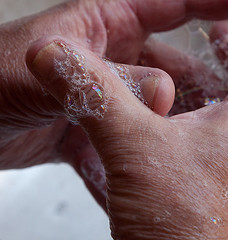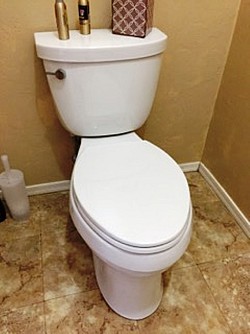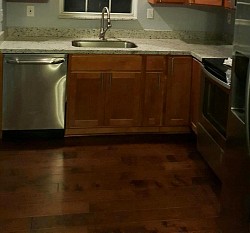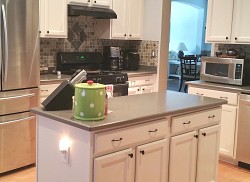When and How to Clean Your Hands … the Right Way
 No other part of the body is as exposed to germs as our hands. If we go on to touch noses, mouths, or food, with unwashed hands, these germs will be transferred into the body. For this reason, the Centers for Disease Control and Prevention cite hand washing as one of the easiest yet most effective methods "to prevent the spread of many types of infection and illness in all settings" and potentially save lives. Not just for hospitals or doctors' offices, hand washing is equally important at home, work, or school. However, a simple pass under the hot water tap is not much use. Find out when and how to clean your hands … the right way.
No other part of the body is as exposed to germs as our hands. If we go on to touch noses, mouths, or food, with unwashed hands, these germs will be transferred into the body. For this reason, the Centers for Disease Control and Prevention cite hand washing as one of the easiest yet most effective methods "to prevent the spread of many types of infection and illness in all settings" and potentially save lives. Not just for hospitals or doctors' offices, hand washing is equally important at home, work, or school. However, a simple pass under the hot water tap is not much use. Find out when and how to clean your hands … the right way.
When to Wash Your Hands
1. When you see visible dirt or feel grease on your hands.
2. If you have come into contact with an open cut or sore, blood, or other body fluids.
3. Before and after you insert or remove your contact lenses.
4. After you cover your mouth while sneezing or coughing (ideally this covering should be done with a tissue or the crook of your elbow rather than your palm).
5. After nose blowing or wiping -- your own, a child's, or anyone else's.
6. Following a visit to the bathroom, changing a diaper, or cleaning up a person who has soiled himself.
7. After you touch a pet or other domesticated or wild animal or its waste.
8. After caring for someone who is ill, including contact with their bed pan, sheets, used dishes, etc.
9. Before preparing or eating food. Be particularly careful after handling raw poultry, due to the danger of cross-contamination.
Washing with Soap and Water
Moisten your hands with water and apply soap. Lather, making sure the suds reach between your fingers and under the nails. (Soap is preferable in liquid form, especially in public settings, as bar soap can spread germs and skin infections from one user to another. Liquid soap also tends to contain moisturizer, which will prevent drying and cracking of the skin.) Lather, making sure the suds reach between your fingers and under the nails. Rub your hands together briskly for a minimum of 20 seconds; it's advised to time yourself by singing two choruses of "Happy Birthday to You." Don't skip this step -- health professionals consider scrubbing essential. Rinse off all the suds and dry with a clean cloth or paper towel. For optimal hygiene, the entire procedure should take at least a full minute.
Antibacterial soap vs. regular soap: Easy to find, inexpensive, and effective at getting rid of germs, regular soap is recommended for everyday hand washing in a non-healthcare setting. Antibacterial soap, which must be left on your hands for at least two minutes before it begins to kill bacteria on the skin, should be used only when specified by your medical practitioner, as it is suspected of promoting antibiotic resistance. Above all, avoid antibacterial soaps containing triclosan, which is currently under review by the FDA..
Cleaning with Disinfectant
Washing with soap and running water is considered the best cleansing method, especially if you need to remove visible dirt, grease, or protein-based material such as blood. However, you may not always have access, for instance when hiking in the Arizona hills far from the comforts of Phoenix plumbing. In such a case, you may substitute an alcohol-based disinfectant An advantage of disinfectants are that they are faster to use, taking about one quarter of the time required for meticulous soap-and-water washing -- this makes them more convenient for medical professionals such as dentists. They are also less irritating and drying because they don't remove the skin's natural oils; therefore, they're less likely to cause dermatitis.
Disinfectants come in the form of liquid, gel, foam, or wipes. For effective cleansing, they should contain 60-95 percent alcohol. To use, apply the amount of disinfectant specified on the packaging and rub it thoroughly over both hands, continuing the rubbing action until hands are dry.
Laura Firszt writes for networx.com.
.
Looking for a Pro? Call us (866) 441-6648

Plumbing Average Costs
Plumbers Experiences

Four Essential Points That Helped Me Install The Best Toilets

How I Chose My Flooring Contractor And Why I’m Glad I Did



